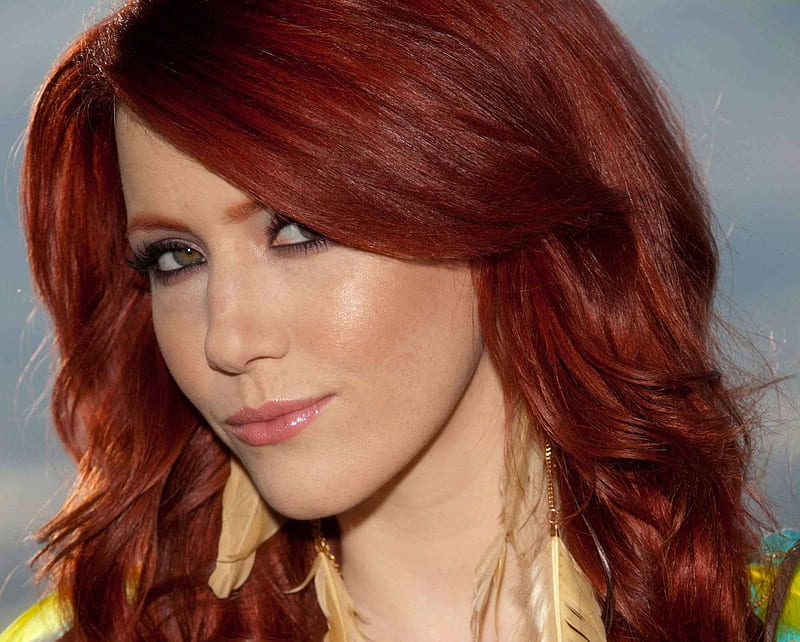Let’s cut straight to the chase here—Ella Alexandra has been making waves online, but not always for the right reasons. You’ve probably stumbled across headlines claiming “Ella Alexandra Nude” or something similarly provocative. But before we dive into this, let’s take a moment to separate fact from fiction. What’s real, what’s fake, and why is this topic even relevant in today’s world of digital sensationalism? Let’s find out together.
It’s no secret that the internet loves drama, and anything with the word "nude" attached to it tends to attract attention like moths to a flame. But here’s the thing—there’s often more to the story than what meets the eye. In this article, we’ll explore the truth behind the claims, shed light on who Ella Alexandra really is, and discuss why it’s important to approach such topics with critical thinking.
This isn’t just about one person or one incident—it’s about understanding how misinformation spreads online and how it affects real people. So, if you’re curious, skeptical, or just want to know the facts, you’re in the right place. Let’s get started!
Read also:Coi Leray Leak The Untold Story Behind The Hype
Table of Contents
- Who Is Ella Alexandra?
- The Controversy Surrounding Ella Alexandra Nude
- Facts vs Fiction: Sorting Through the Noise
- Why This Matters: The Impact of Sensationalism
- Privacy in the Digital Age
- How to Protect Yourself Online
- The Role of Social Media in Spreading Misinformation
- Legal Implications of Sharing Nude Content Without Consent
- Ethical Responsibility: What Can You Do?
- Conclusion: Moving Forward
Who Is Ella Alexandra?
Before we delve into the controversy, let’s first get to know the person at the center of all this. Ella Alexandra is a name that might ring a bell for some, especially if you’re an avid follower of entertainment news or social media trends. But who exactly is she? Below, we’ll break down her background, achievements, and what makes her such a fascinating figure.
Biography of Ella Alexandra
Ella Alexandra, whose full name is Ella Alexandra Thompson, was born on March 12, 1995, in Los Angeles, California. She’s an actress, model, and social media influencer who gained prominence over the past few years. Her career took off after starring in several indie films and appearing in various fashion campaigns. Today, she boasts a substantial following across platforms like Instagram and TikTok, where she shares snippets of her life and creative projects.
Let’s take a closer look at her personal details:
| Full Name | Ella Alexandra Thompson |
|---|---|
| Date of Birth | March 12, 1995 |
| Place of Birth | Los Angeles, California |
| Profession | Actress, Model, Influencer |
| Education | Bachelor’s Degree in Film Studies |
The Controversy Surrounding Ella Alexandra Nude
Now, let’s talk about the elephant in the room—the infamous “Ella Alexandra Nude” claims. You’ve probably seen these headlines plastered across sketchy websites or lurking in your social media feed. But what’s the deal? Is there any truth to it, or is it just another case of clickbait gone wild?
What Really Happened?
The short answer is—nothing happened. Despite what some sites might claim, there’s zero evidence to suggest that Ella Alexandra has ever leaked or released any explicit content. In fact, most of the images or videos circulating online are either fake, photoshopped, or taken out of context. It’s a classic case of misinformation being spread to generate clicks and revenue.
Read also:Elizabeth Zaks Leak The Untold Story Behind The Viral Sensation
Here’s the kicker—many of these sites prey on people’s curiosity and lack of critical thinking. They bait users with sensational headlines, only to deliver useless or misleading content. It’s a shady practice that harms not only the individuals involved but also the broader digital community.
Facts vs Fiction: Sorting Through the Noise
When it comes to topics like this, separating fact from fiction is crucial. So, how do we know what’s real and what’s not? Here are a few tips to help you navigate the murky waters of online information:
- Stick to reputable sources: If a website looks sketchy or has a ton of ads, it’s probably not trustworthy.
- Check for verifiable evidence: Look for credible reports, interviews, or statements from the person in question.
- Be skeptical of clickbait: If a headline seems too good (or bad) to be true, it probably is.
- Use fact-checking tools: Websites like Snopes or FactCheck.org can help you verify claims.
At the end of the day, it’s all about being informed and critical. Don’t fall for the trap of believing everything you read online—because let’s face it, the internet can be a wild place.
Why This Matters: The Impact of Sensationalism
So, why should you care about all this? Well, the truth is, sensationalism doesn’t just affect the people at the center of these controversies—it affects everyone. When false information spreads unchecked, it erodes trust, fuels negativity, and creates a toxic online environment. Here’s how:
The Broader Implications
For starters, spreading false information can have serious consequences for the individuals involved. In Ella Alexandra’s case, being falsely associated with explicit content can damage her reputation, career, and mental well-being. But it’s not just her—it’s everyone who consumes and shares this content without questioning its validity.
Moreover, sensationalism perpetuates a cycle of negativity and division. It distracts us from important issues, polarizes opinions, and makes it harder to have meaningful conversations. It’s a problem that affects us all, and it’s one we need to address head-on.
Privacy in the Digital Age
As we move further into the digital age, privacy has become a growing concern for many. With so much of our lives online, it’s easier than ever for personal information to be exploited or misused. So, how do we protect ourselves in this ever-evolving landscape?
Tips for Protecting Your Privacy
- Use strong, unique passwords for all your accounts.
- Be cautious about what you share online—once it’s out there, it’s out there forever.
- Enable two-factor authentication whenever possible.
- Regularly review your privacy settings on social media platforms.
Remember, your digital footprint is a reflection of you. Take the necessary steps to safeguard your information and ensure that you’re in control of your online presence.
How to Protect Yourself Online
In addition to protecting your privacy, there are other measures you can take to stay safe online. Here are a few more tips to keep in mind:
- Avoid clicking on suspicious links or downloading unknown files.
- Use a reputable antivirus program and keep it up to date.
- Be wary of phishing scams—always double-check the sender’s email address.
- Report any suspicious activity to the appropriate authorities.
Staying safe online isn’t just about protecting yourself—it’s about protecting others too. By practicing good digital hygiene, you help create a safer, more secure online environment for everyone.
The Role of Social Media in Spreading Misinformation
Social media has become a double-edged sword in today’s world. On one hand, it’s a powerful tool for connection and communication. On the other hand, it’s a breeding ground for misinformation and sensationalism. So, how do we navigate this complex landscape?
Social Media Platforms’ Responsibility
While much of the responsibility lies with individual users, social media platforms also have a role to play. They need to do more to combat the spread of false information, whether through better algorithms, stricter moderation policies, or increased transparency. It’s a tall order, but it’s one that’s necessary for the health of our digital ecosystem.
As users, we can help by being mindful of what we share and encouraging others to do the same. Together, we can make a difference.
Legal Implications of Sharing Nude Content Without Consent
One thing that often gets overlooked in these discussions is the legal side of things. Sharing explicit content without someone’s consent—commonly referred to as “revenge porn”—is illegal in many jurisdictions. Not only is it unethical, but it can also lead to serious legal consequences.
What Are the Penalties?
Penalties for distributing explicit content without consent vary depending on the country or state, but they can include fines, imprisonment, or both. It’s a serious offense that should not be taken lightly. If you suspect someone is engaging in this behavior, report it to the authorities immediately.
By understanding the legal implications, we can better appreciate the gravity of these actions and why it’s so important to respect others’ privacy.
Ethical Responsibility: What Can You Do?
Finally, let’s talk about ethical responsibility. As consumers of information, we have a duty to approach topics like this with integrity and respect. Here’s how you can make a positive impact:
- Question everything—don’t believe something just because it’s trending.
- Spread awareness about the dangers of misinformation and sensationalism.
- Support those who’ve been affected by these issues and advocate for change.
We all have a part to play in creating a better, more responsible online community. Let’s rise to the challenge.
Conclusion: Moving Forward
In conclusion, the topic of “Ella Alexandra Nude” is a prime example of how misinformation can spread like wildfire online. While it might seem harmless to click on a sensational headline or share a questionable post, the reality is that these actions have real-world consequences. They harm individuals, erode trust, and contribute to a toxic digital environment.
So, what can you do? Start by being informed, critical, and responsible. Question what you read, verify your sources, and think before you share. Together, we can make a difference and create a safer, more respectful online world.
And hey, if you’ve made it this far, why not leave a comment or share this article with your friends? Let’s keep the conversation going and work towards a brighter future—for everyone.


